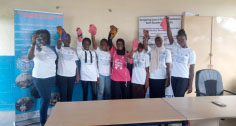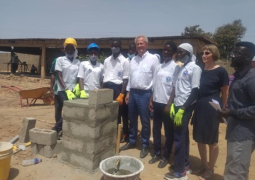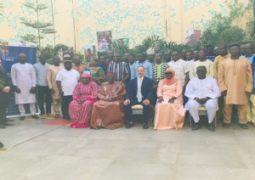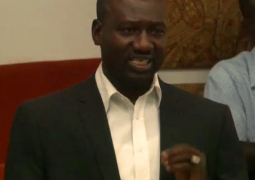
The training was part of the implementation research on Strengthening Access to Quality Comprehensive Health Education for in-and-out of school adolescents in The Gambia.
The event which, attracted participants from the 9 wards in Banjul, covered different types of production of reusable sanitary products such as, reusable cloth pads, period pantie, menstrual cups and menstrual disc.
It also exposed participants to different hygienic methods on how to keep themselves clean during their menstrual period; reusable sanitary/cloth pads; how to use reusable sanitary pads, caring for cloth pads; importance of using reusable sanitary pads among other topics.
The Comprehensive Health Education (CHE) project dubbed, Strengthening Access to Quality Comprehensive Health Education in The Gambia, is an implementation research project conducted by Ministry of Basic and Secondary Education (MoBSE) with funding from International Development Research Center (IDRC).
It is designed to enlighten and educate in and out-of-school students on adolescent sexual and reproductive health (ASRH).
During the weeklong Training of Trainers (TOT), Phebian Ina Grant-Sagnia, principal investigator of the project, disclosed that one of their research findings revealed the issue of menstruation, wherein “girls found it difficult to go to school whilst seeing their period due to lack of sanitary pads.”
“The other issue was usage of sanitary pad as some use one sanitary pad the whole day without changing it due to lack of knowledge and skills on how to take care of one’s self during menstruation.”
She explained that reusable pads can be used for 2-years and it is reliable, cost effective, changes lives and improves health and “the only way one can use it is to wash it, dry it, iron it and keep if for the next menstrual cycle.”
Madam Grant-Sagnia thus thanked IDRC for funding as as well the implementing partner – MoBSE.
Also speaking, Fatoumatta Gassama, a trainer, who doubles as founder and CEO of Girl’s Pride, indicated that the training has exposed participants who are drawn from nine wards in Banjul, to various issues such as how to make the reusable sanitary pad locally by using locally available materials here.
“They’ve been mandated to do a step down training in their wards as well to empower each other because the plan is to have more girls to be able to make reusable pads that are eco friendly and chemical free for themselves.”
For Adama Jobe, Banjul North Crab Island Ward, she has learnt how to draw pattern on vanguard, cut and how to cut the materials as well as how one can use with a needle to sew the materials.
Lena Njie Box Bar, KhaddyTrawally New Town Wards as well as Isatou Dumbuya of Grant Street, all expressed similar sentiments.





